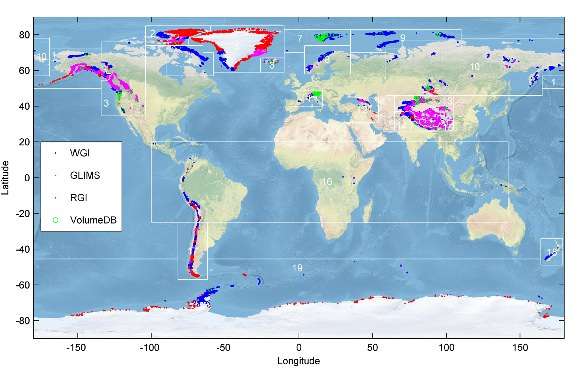Ronald Bailey Refuted On Evidence for Man-Made Climate Change?
Roy Spencer and Christopher Monckton school me on climate change

Last week, I wrote an article asking, "What Evidence Would Persuade You That Man-Made Climate Change Is Real?" Let's just say that it provoked some readers a bit. Now some participants in the climate change science controversy are explaining how I misinterpret or misunderstand what is going on. For the convenience of Reason readers I link to a couple below.
University of Alabama in Huntsville climatologist Roy Spencer posted his response in, "Answering Ron Bailey's Question" earlier this week. I briefly respond in the comment section to Spencer. I will mention that I intend to hold those predicting rapid warming to their prognostications:
…with regard to the falsifiable predictions I cite – I intend to hold them to it, e.g., if global average temperature is not rising at a rate +0.25 per decade by 2020 that will strongly tend to discredit the more catastrophic projections of future warming.
I do ask:
I am curious – if GMT does begin a sustained rapid ascent in the next few years such that the long term trends projected in the models begin to look plausible – how would that bear on your views about man-made contributions to climate change?
Next comes Christopher Monckton over at Watts Up With That with his reponse "How to Convince a Climate Skeptic that He Is Wrong."
First, Monckton is against the "tax gobblers" - by which he means those who want to use a "climate crisis" to justify the expansion of government. We agree. Please note that I began by stating in the subhed of my article: "Scientific evidence does not mandate any particular policy." Let's say it again: Progressives are flat out wrong when they try to claim that man-made warming necessarily implies adopting their preferred economic policies. That was one of the main points I was trying to make in my article.
In one response Monckton asks:
Is CO2 concentration rising to dangerous new levels?
No. Mr Bailey says CO2 concentration is 30% higher than the 800,000-year peak. So what?
Again, there are no definitive answers, but a new study in Nature Climate Change, "Causal Feedbacks in Climate Change" reports that the researchers …
…demonstrate directly from ice-core data that, over glacial–interglacial timescales, climate dynamics are largely driven by internal Earth system mechanisms, including a marked positive feedback effect from temperature variability on greenhouse-gas concentrations.
Whether or not such increases will become "dangerous" depends upon how high climate sensitivity, the temperature reponse to doubling atmospheric carbon dioxide, turns out to be. An issue that I have pointed out is still unsettled science.
Monckton even mocks me from being wrong about the number of glaciers:
Actually there are more than 160,000 of them and nearly all of them are in Antarctica…
He could have clicked on the article from which I derived (and rounded) the figure to which I linked:
The World Glacier Inventory (WGI) which has extensive metadata on 132,000 glaciers and ice caps (WGMS and NSIDC, 2012). I also use the Global Land Ice Monitoring from Space (GLIMS) database which has glacier outlines and some metadata for 96,000 glaciers and ice caps (Armstrong et al., 2012). Finally, I use the newly compiled Randolph Glacier Inventory v2 (RGI) which contains, primarily, 170,000 glacier outlines with little additional metadata for each record.

Map of glaciers from article above.
Folks, as I have said, my best judgement is that the preponderance of the evidence - not beyond a reasonable doubt - suggests that man-made global warming could become a significant problem later in this century. Given my ideological commitments I would much prefer (and do hope) to be wrong. As noted, I intend to monitor the predictions made by those who think warming will be rapid and dangerous. If they fail, believe me, I will happily report those failures.
In any case, I link to these two responses as a reader service as a convenience for those interested in this discussion.
Hat tip Steven King.


Show Comments (109)